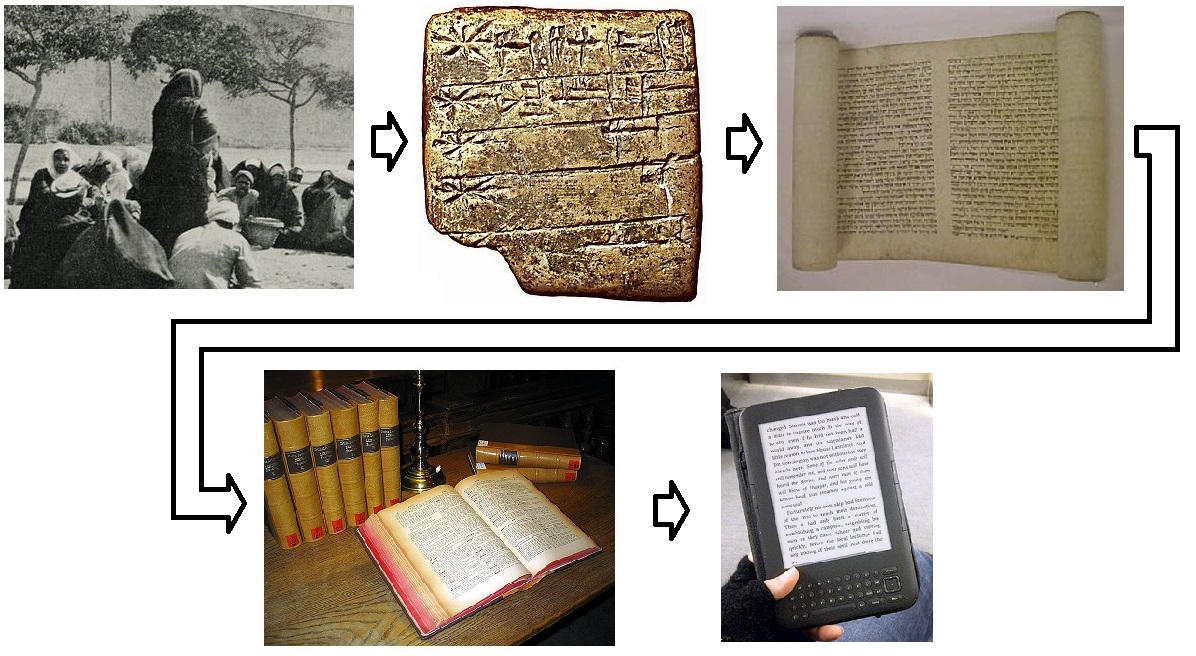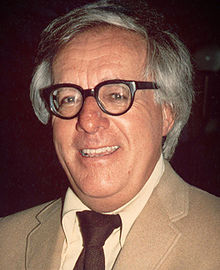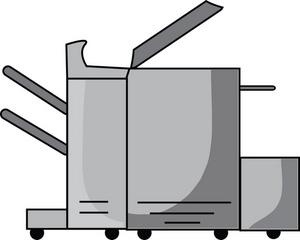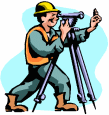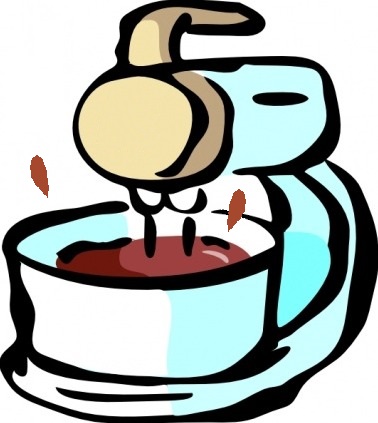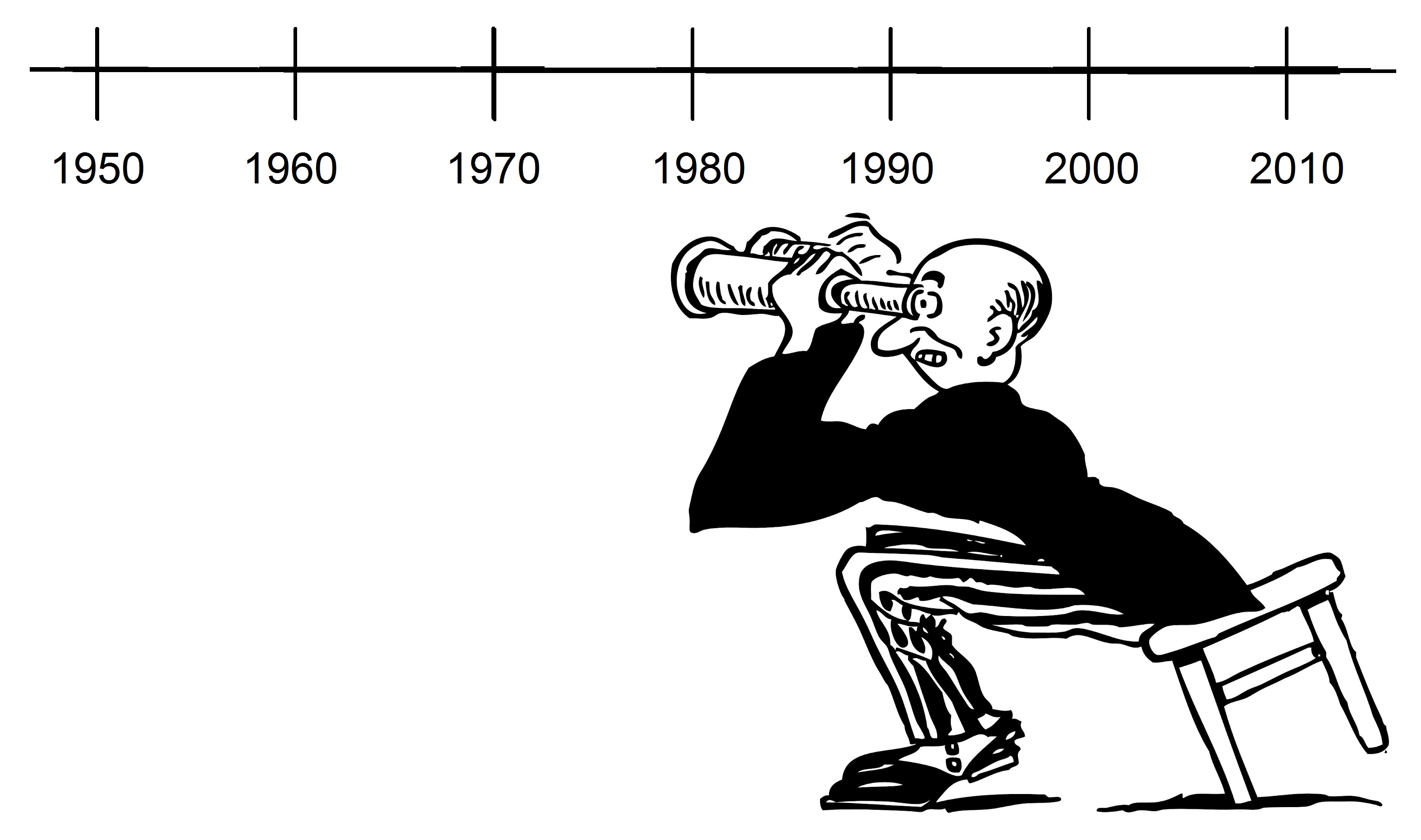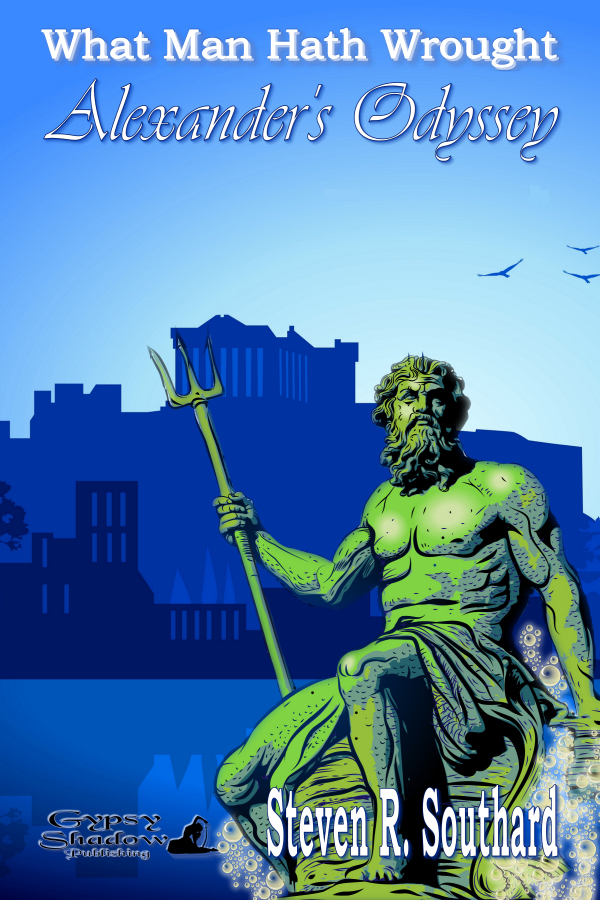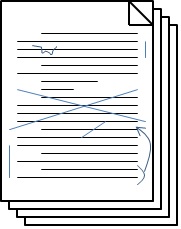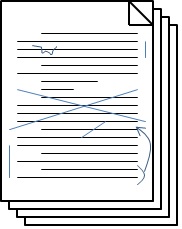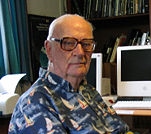To distort a line from a Bob Dylan song, times are indeed a’changin’ in the publishing industry. In the long march from storytellers to clay tablets to papyrus scrolls to bound books to electronic books, each technology has brought a revolution and we’re now in the middle of one.
After Gutenberg’s printing press and right up until the Internet, the book publishing industry had optimized into a fairly lean and stable operation, full of specialized tasks. Each task was fairly well understood.
The writer wrote, and sought an agent. The agent sought a publishing house and handled all the contractual details for the writer. At the publishing house, of which there were only a few big ones, the editor polished the prose. Upon agreement about the text, the publisher took care of cover design, printing, distribution, and marketing to booksellers. The bookseller catered to the reading public, offering books for sale from their stores.
Despite all the middlemen, that process had been pretty well honed such that readers could still obtain books inexpensively.
With the advent of the Internet, much has changed, and it’s got all of the middlemen wondering what their future role will be, if any.
For the writer, there are software word processors and Internet research options, but not much else has changed. A writer still must create the prose.
At the other end, the reader has more options, including e-readers and audiobooks, but for the most part reading is unchanged.
But agents, editors, cover designers, marketers, distributors, and booksellers are all left wondering what’s going to happen to them. These days, writers can connect directly with readers, bypassing all the former steps. An author can work with a single website such as Amazon, Smashwords, Kobo, and others, to get e-books directly to the reading public.
These websites offer many services, but the writer must do most of the tasks formerly accomplished by middlemen. This includes reviewing the contract, editing, cover design, and marketing.
So where is all this going? At what sort of equilibrium state will all this turmoil settle out?
It may be too early to tell, but I think there will be places for all the publishing middlemen in the future, assuming they adapt to an Internet-based world. Some writers still need agents, editors, cover designers, and distributors. Some readers still want bound books. Much like the continued (but low) demand for horseshoes and oil lamps, there will be niche markets for all these functions.
As for me, I have yet to take the full plunge into self-publishing. So far, with my short stories, I’ve been dealing with an independent ebook publisher, and with publishers of anthologies.
If Bob Dylan’s right, and the times they are a’changin’, where do you think the book publishing industry is headed? What change would you like to see? Leave me a comment and perhaps we can change things together, just you and—
Poseidon’s Scribe

